-
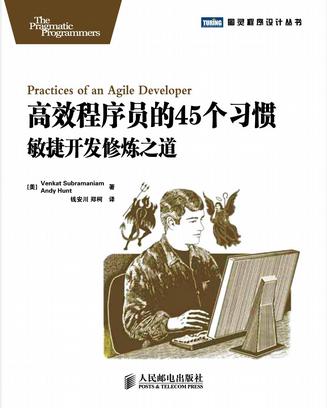
高效程序员的45个习惯
“书中‘切身感受’的内容非常有价值——通过它我们可以做到学有所思,思有所悟,悟有所行。” ——Nathaniel T. Schutta,《Ajax基础教程》作者 “此书通过常理和经验,阐述了为什么你应该在项目中使用敏捷方法。最难得的是,这些行之有效的实战经验,竟然从一本书中得到了。” ——Matthew Johnson,软件工程师 十年来,软件行业发生了翻天覆地的变化。敏捷方法大行其道,测试和测试驱动开发在很多开发人员的工作中扮演着重要的角色。作为一名程序员,你应该培养怎样的素质,方能对多变的环境应对自如,始终立于不败之地? 本书简明实用、见解深刻,总结了高效程序员在开发过程中的45个个人习惯、思想观念和方法,有助于开发人员在开发进程、编码工作、开发者态度、项目和团队管理,以及持续学习等5个方面积极修炼。通过学习这些内容,养成这些好的习惯,你可以极大地提升自己的编程实力,更快速、更可靠地交付更高质量的软件,从而成为真正的高效程序员。 -
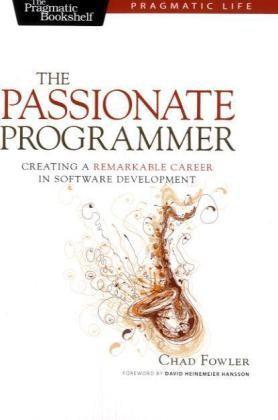
The Passionate Programmer
Success in today's IT environment requires you to view your career as a business endeavor. In this book, you'll learn how to become an entrepreneur, driving your career in the direction of your choosing. You'll learn how to build your software development career step by step, following the same path that you would follow if you were building, marketing, and selling a product. After all, your skills themselves are a product. The choices you make about which technologies to focus on and which business domains to master have at least as much impact on your success as your technical knowledge itself; don't let those choices be accidental. We'll walk through all aspects of the decision-making process, so you can ensure that you're investing your time and energy in the right areas. You'll develop a structured plan for keeping your mind engaged and your skills fresh. You'll learn how to assess your skills in terms of where they fit on the value chain, driving you away from commodity skills and toward those that are in high demand. Through a mix of high-level, thought-provoking essays and tactical 'Act on It' sections, you will come away with concrete plans you can put into action immediately. You'll also get a chance to read the perspectives of several highly successful members of our industry from a variety of career paths. As with any product or service, if nobody knows what you're selling, nobody will buy. We'll walk through the often-neglected world of marketing, and you'll create a plan to market yourself both inside your company and to the industry in general. Above all, you'll see how you can set the direction of your career, leading to a more fulfilling and remarkable professional life. -
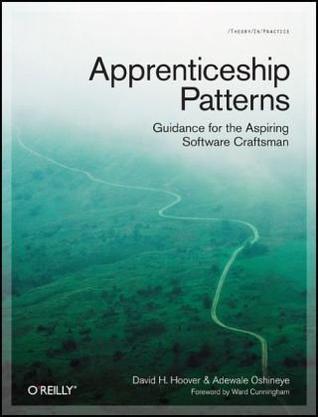
Apprenticeship Patterns
Software developers face an ever-changing and ever-expanding technology landscape, which can appear as intimidating as Mt. Everest to newcomers. Developing technical skills is vital, but there are dozens of soft skills and learning techniques you need if you're to grow and succeed professionally. Honing those soft skills is a big part of what "Apprenticeship Patterns" is all about. Authors Dave Hoover and Adewale Oshineye, both formerly of the global IT consultancy ThoughtWorks, have cataloged dozens of patterns of behavior to help software developers hone their craft. Developed through years of research, a multitude of interviews, and feedback from O'Reilly's online forum, these patterns address difficult situations faced by entry-level programmers, system administrators, and database administrators. Each pattern has a memorable name to help point you in the right direction when you need it most. Examples of common obstacles and their solutions include: burned out at work? - learn how to 'Nurture Your Passion' by finding a pet project to help you rediscover the joy of problem solving; feeling overwhelmed by too much new information? - take a step back from your learning to re-explore some familiar territory by building something you've built before, then use 'Retreat Into Competence' to launch yourself forward again ; and, feeling stuck in your learning? - seek out a team of experienced and talented developers where you can 'Be the Worst' for a while Like any patterns book, you can read this one front-to-back, jump to specific patterns when you encounter the issues they address, or cherry pick just the ones that are new to you. The purpose of the solutions is to inspire you to stay on the path you intend, rather than wander off into management because it seems like the only option for advancement. "Apprenticeship Patterns" approaches software development not as a means to financial success, but as a means to personal fulfillment. It's your life and your career. Discover how this book can help you make the best of both. -
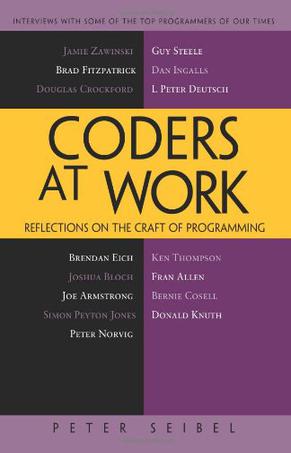
Coders at Work
Peter Seibel interviews 15 of the most interesting computer programmers alive today in Coders at Work, offering a companion volume to Apress's highly acclaimed best-seller Founders at Work by Jessica Livingston. As the words "at work" suggest, Peter Seibel focuses on how his interviewees tackle the day-to-day work of programming, while revealing much more, like how they became great programmers, how they recognize programming talent in others, and what kinds of problems they find most interesting. Hundreds of people have suggested names of programmers to interview on the Coders at Work web site: www.codersatwork.com. The complete list was 284 names. Having digested everyone's feedback, we selected 15 folks who've been kind enough to agree to be interviewed: * Frances Allen: Pioneer in optimizing compilers, first woman to win the Turing Award (2006) and first female IBM fellow * Joe Armstrong: Inventor of Erlang * Joshua Bloch: Author of the Java collections framework, now at Google * Bernie Cosell: One of the main software guys behind the original ARPANET IMPs and a master debugger * Douglas Crockford: JSON founder, JavaScript architect at Yahoo! * L. Peter Deutsch: Author of Ghostscript, implementer of Smalltalk-80 at Xerox PARC and Lisp 1.5 on PDP-1 * Brendan Eich: Inventor of JavaScript, CTO of the Mozilla Corporation * Brad Fitzpatrick: Writer of LiveJournal, OpenID, memcached, and Perlbal * Dan Ingalls: Smalltalk implementor and designer * Simon Peyton Jones: Coinventor of Haskell and lead designer of Glasgow Haskell Compiler * Donald Knuth: Author of The Art of Computer Programming and creator of TeX * Peter Norvig: Director of Research at Google and author of the standard text on AI * Guy Steele: Coinventor of Scheme and part of the Common Lisp Gang of Five, currently working on Fortress * Ken Thompson: Inventor of UNIX * Jamie Zawinski: Author of XEmacs and early Netscape/Mozilla hacker What you'll learnHow the best programmers in the world do their jobs! Who this book is for Programmers interested in the point of view of leaders in the field. Programmers looking for approaches that work for some of these outstanding programmers. Table of Contents * Jamie Zawinski * Brad Fitzpatrick * Douglas Crockford * Brendan Eich * Joshua Bloch * Joe Armstrong * Simon Peyton Jones * Peter Norvig * Guy Steele * Dan Ingalls * L Peter Deutsch * Ken Thompson * Fran Allen * Bernie Cosell * Donald Knuth -
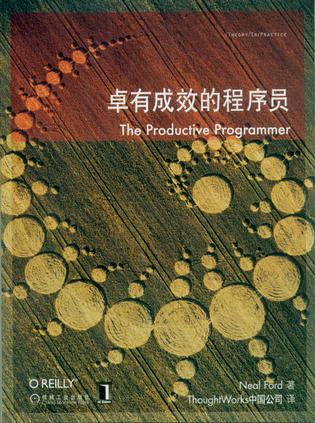
卓有成效的程序员
《卓有成效的程序员》就是讲述如何在开发软件的过程中变得更加高效。同时,《卓有成效的程序员》的讲述将会跨语言和操作系统:很多技巧的讲述都会伴随多种程序语言的例子,并且会跨越三种主要的操作系统,Windows(多个版本),Mac OS X以及 *-nix (Unix或者Linux)。 《卓有成效的程序员》讨论的是程序员个体的生产力,而不是团队的生产力问题,所以它不会涉及方法论(好吧,可能总会在这里或那里谈论到一些,但肯定不会深入讨论)。同时《卓有成效的程序员》也不会讨论生产力对整个团队的影响。我的使命,是让作为个体的程序员通过掌握恰当的工具和思想变得更加高效。 -
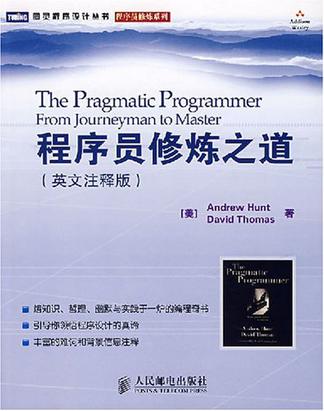
程序员修炼之道
《程序员修炼之道》适合各层次软件开发人员阅读,也适合高等院校计算机专业学生和教师阅读。